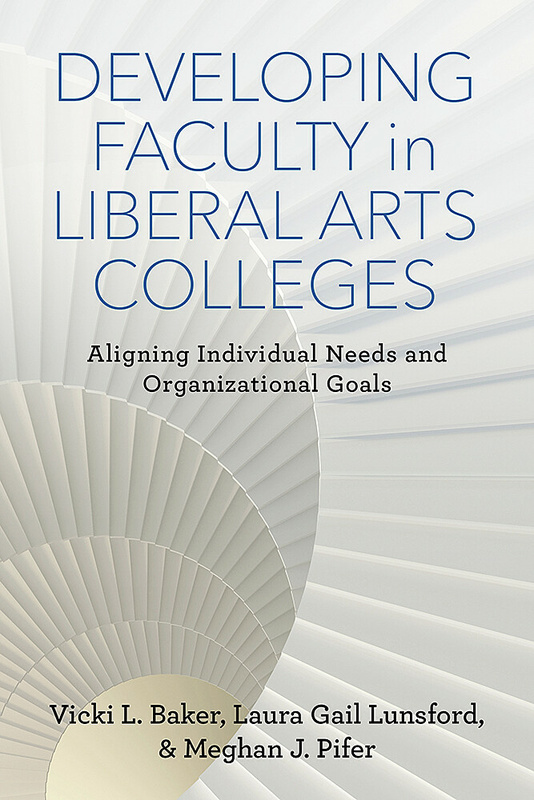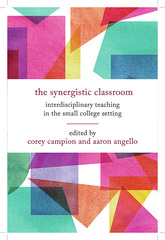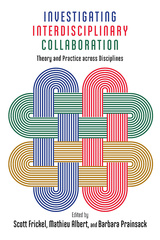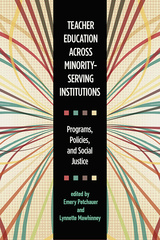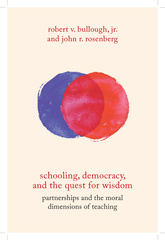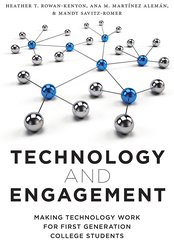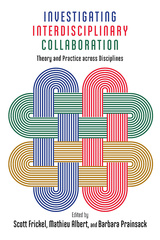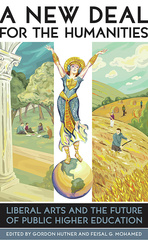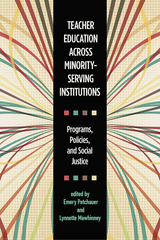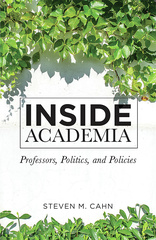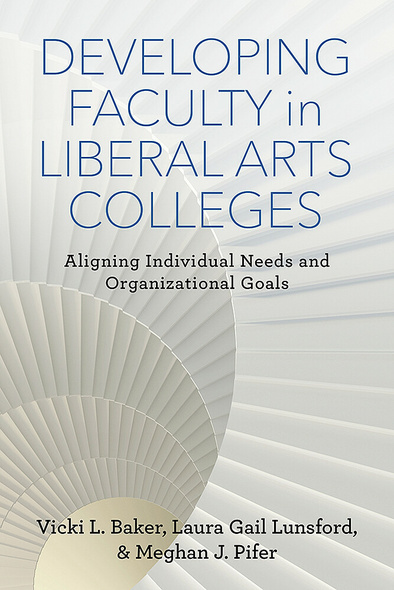
260 pages, 6 x 9
2 line drawings, 8 tables
Paperback
Release Date:30 Nov 2017
ISBN:9780813586809
Hardcover
Release Date:30 Nov 2017
ISBN:9780813586816
Developing Faculty in Liberal Arts Colleges
Aligning Individual Needs and Organizational Goals
SERIES:
The American Campus
Rutgers University Press
Developing Faculty Members in Liberal Arts Colleges analyzes the career stage challenges these faculty members must overcome, such as a lack of preparation for teaching, limited access to resources and mentors, and changing expectations for excellence in teaching, research, and service to become academic leaders in their discipline and at these distinctive institutions.
Drawing on research conducted at the thirteen institutions of the Great Lakes Colleges Association, Vicki L. Baker, Laura Gail Lunsford, and Meghan J. Pifer propose a compelling Alignment Framework for Faculty Development in Liberal Arts Colleges to show how these colleges succeed—or sometimes fail—in providing their faculties with the right support to be successful.
Drawing on research conducted at the thirteen institutions of the Great Lakes Colleges Association, Vicki L. Baker, Laura Gail Lunsford, and Meghan J. Pifer propose a compelling Alignment Framework for Faculty Development in Liberal Arts Colleges to show how these colleges succeed—or sometimes fail—in providing their faculties with the right support to be successful.
The greatest challenge to liberal arts colleges is the depreciation of their most precious asset—the faculty's passion, dedication, and commitment to educate students to be citizens in a democratic society. Developing Faculty in Liberal Arts Colleges provides a frank, comprehensive diagnosis of how colleges and universities can better align social capital and institutional mission with the human infrastructure needs of a changing professoriate.'
The authors have written a thoroughly researched and thoughtful account of the career development of faculty members in liberal arts colleges. Its broad field of vision offers a wealth of suggestions for enhancing faculty professional satisfaction and personal well-being throughout the academic career. There is no question in my mind that this book will become the go-to source for understanding the distinctive nature of faculty life in small colleges.’
A singularly impressive work of seminal and research-based scholarship.
This book analyzes the career stage challenges many faculty members must overcome, such as a lack of preparation for teaching, limited access to resources and mentors, and changing expectations for excellence in teaching, research, and service, to become academic leaders. Drawing on research conducted at the 13 institutions of the Great Lakes Colleges Association, the authors propose an Alignment Framework for Faculty Development in Liberal Arts Colleges to show how these colleges provide their faculties with the support to succeed.
The book offers insights into the faculty experience for tenured/tenure track faculty as well as contingent faculty in LACs. Further, the career stage lens sheds light on the experiences, needs, and challenges faced by faculty across all stages of the professoriate.
The greatest challenge to liberal arts colleges is the depreciation of their most precious asset—the faculty's passion, dedication, and commitment to educate students to be citizens in a democratic society. Developing Faculty in Liberal Arts Colleges provides a frank, comprehensive diagnosis of how colleges and universities can better align social capital and institutional mission with the human infrastructure needs of a changing professoriate.'
The authors have written a thoroughly researched and thoughtful account of the career development of faculty members in liberal arts colleges. Its broad field of vision offers a wealth of suggestions for enhancing faculty professional satisfaction and personal well-being throughout the academic career. There is no question in my mind that this book will become the go-to source for understanding the distinctive nature of faculty life in small colleges.’
A singularly impressive work of seminal and research-based scholarship.
This book analyzes the career stage challenges many faculty members must overcome, such as a lack of preparation for teaching, limited access to resources and mentors, and changing expectations for excellence in teaching, research, and service, to become academic leaders. Drawing on research conducted at the 13 institutions of the Great Lakes Colleges Association, the authors propose an Alignment Framework for Faculty Development in Liberal Arts Colleges to show how these colleges provide their faculties with the support to succeed.
The book offers insights into the faculty experience for tenured/tenure track faculty as well as contingent faculty in LACs. Further, the career stage lens sheds light on the experiences, needs, and challenges faced by faculty across all stages of the professoriate.
VICKI L. BAKER is a professor of economics and management at Albion College, and an instructor of business administration for Penn State University’s World Campus.
LAURA GAIL LUNSFORD is the director of the Swain Center in the Cameron School of Business, University of North Carolina Wilmington.
MEGHAN J. PIFER is an associate professor of higher education administration in the Department of Educational Leadership, Evaluation, and Organizational Development at the University of Louisville.
LAURA GAIL LUNSFORD is the director of the Swain Center in the Cameron School of Business, University of North Carolina Wilmington.
MEGHAN J. PIFER is an associate professor of higher education administration in the Department of Educational Leadership, Evaluation, and Organizational Development at the University of Louisville.
CONTENTS
Foreword
Life at a Small Liberal Arts College
by Michael Reder
Note on the Text
Introduction
Developing Faculty Members in Liberal
Arts Colleges: Aligning Individual Needs
with Organizational Goals
PART ONE
Contexts of Academic Work in Liberal
Arts Colleges: Inside Institutions and Departments
1 Institutional Structures, Support, and Evaluation
2 Academic Departments
PART TWO
Understanding Faculty Members:
What They Do and What They Need
3 A Holistic View of Faculty Work
Lives in Liberal Arts Colleges
4 Aligning Faculty Needs with Institutional Priorities
viii Contents
PART THREE
Aligning Resources: Supporting
Faculty Members and Academic Work
5 Mentoring and Key Relationships
6 Trends and Exemplars
PART FOUR
At the Intersection: A Space for
Innovation and Competitive Advantage
7 The Alignment Framework for Faculty
Development in Liberal Arts Colleges
Acknowledgments
Appendix A
Appendix B
Appendix C
References
Index
Foreword
Life at a Small Liberal Arts College
by Michael Reder
Note on the Text
Introduction
Developing Faculty Members in Liberal
Arts Colleges: Aligning Individual Needs
with Organizational Goals
PART ONE
Contexts of Academic Work in Liberal
Arts Colleges: Inside Institutions and Departments
1 Institutional Structures, Support, and Evaluation
2 Academic Departments
PART TWO
Understanding Faculty Members:
What They Do and What They Need
3 A Holistic View of Faculty Work
Lives in Liberal Arts Colleges
4 Aligning Faculty Needs with Institutional Priorities
viii Contents
PART THREE
Aligning Resources: Supporting
Faculty Members and Academic Work
5 Mentoring and Key Relationships
6 Trends and Exemplars
PART FOUR
At the Intersection: A Space for
Innovation and Competitive Advantage
7 The Alignment Framework for Faculty
Development in Liberal Arts Colleges
Acknowledgments
Appendix A
Appendix B
Appendix C
References
Index

